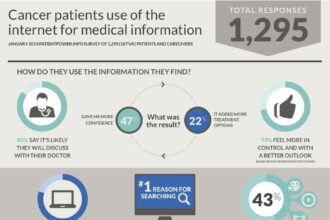We have all heard about cancer treatments that cost $100,000 or more, but only yield an average survival of a couple of months. Is it worth it, you may have wondered, especially when there are so many other healthcare treatments that produce longer survivals and, perhaps, better quality of life?
We have all heard about cancer treatments that cost $100,000 or more, but only yield an average survival of a couple of months. Is it worth it, you may have wondered, especially when there are so many other healthcare treatments that produce longer survivals and, perhaps, better quality of life?
The answer, of course, depends on who you are. If you are the young, healthy Chief Medical Officer of a Health Plan, responsible for making decisions about how precious resources are spent, you may not value a very expensive cancer treatment with a short median survival time as highly as a less expensive treatment for another disease that has more impressive survival statistics. However, if you are a young mother with metastatic breast cancer, it is likely that the value calculation is quite different.
If you now factor in the difference between the average survival and the spread of survival related to any given treatment, the calculation changes yet again. As a patient with an advanced cancer, you may not want to spend $100,000 on a treatment if you knew for sure that your survival was only going to be three months, but what if there was a 15% chance that the same treatment could give you an additional twenty months of life?
In an effort to shed light on this issue, Darius Lakdawalla (Director of Research at the Leonard D. Schaeffer Center for Health Policy and Economics, USC) and colleagues designed an interesting study that was published in the April 2012 issue of Health Affairs. The empirical question was “Do patients near the end of life like or dislike therapies with greater spread in survival outcomes?” In other words, “would patients value the ‘hope’ of a large survival gain, independent of a therapy’s average gain.”
To answer the question, the researchers presented different scenarios to cancer patients and asked them to choose which treatment they preferred and how much they would be willing to pay for it. There were two scenarios, one that described options for treatment of metastatic breast cancer and the other treatment for advanced melanoma. The treatments presented to the patients were “real-world” therapies based on the published clinical trials.
The metastatic breast cancer treatment “hopeful” scenario was based on a recent clinical trial in which combination therapy, ixabepilone (Ixempra) plus capecitabine (Xeloda), produced a median survival of 12.9 months, but a one in ten chance of living past forty-eight months. It was compared to a hypothetical treatment that they were told would produce, with 100% certainty, an eighteen month survival – a “sure bet.”
The advanced melanoma scenario compared a hopeful treatment, ipilimumab (Yervoy), that resulted in one out of five patients being alive after forty-four months with the sure bet treatment that they were told would give them exactly twenty-four more months of survival.
The scenarios were embedded in a survey instruments that also presented different values for payment of the treatments in a “payment card” format. The surveys were administered by research staff face-to-face with 150 cancer patients who were currently undergoing treatment or “watchful waiting.” Forty-seven breast cancer patients, twenty of whom were considered “late stage,” were given the breast cancer treatment options survey and twenty patients with advanced melanoma were asked to respond to the melanoma survey instrument. A third groups of patients with other types of solid cancers were randomized into the two survey arms to balance the groups.
And the results showed…
Overall, seventy-seven percent of the patients preferred the hopeful scenario over the sure bet even though the two treatments provided the same average survival. The breast cancer group was about 12% more likely than the metastatic melanoma patients to choose the gamble, however the authors note that this could have been related to over representation of “other” cancers in the melanoma group.
Patients were also willing to pay quite a bit for hopeful treatments, the average being $54,362 (95% confidence interval: $33,501-$75,673). One quarter of breast cancer patients were willing to pay at least $90,000 and melanoma patients at least $45,000 to gamble on the possibility of a longer survival. When willingness to pay was examined by income quartiles, however, there was a ten-fold difference in willingness to pay for the hopeful scenario between the lowest and the highest income quartile. Income, however, was not related to the probability of preferring the hopeful gamble.
The authors acknowledge the limitations of the study, particularly the fact that the patients were not making real life decisions, rather only “paper” decisions. They do, however, correctly suggest that attempts to value health technology assessments need to include more than just the median gain in survival or quality adjusted survival if we are going to end up with value-based benefit designs that are truly patient-centered.
But, here in lies the rub. Even if we had a fool-proof methodology to build the value of hope into our insurance designs, how will we balance the desires of the individual cancer patient with the desires of everyone else who pays into the insurance pool? Can we really afford to offer every cancer patient who wants it the option of a very expensive hopeful treatment, especially given the fact that folks who can’t afford to pay much out of pocket prefer that type of treatment as strongly as those who could pay.
Given that we have already learned to live with a tiered medical system where the wealthy access more and often better care than the poor, perhaps this isn’t a question we have the national will to address. If that is the case, the value of hope may be restricted to those willing and able to pay for it.








